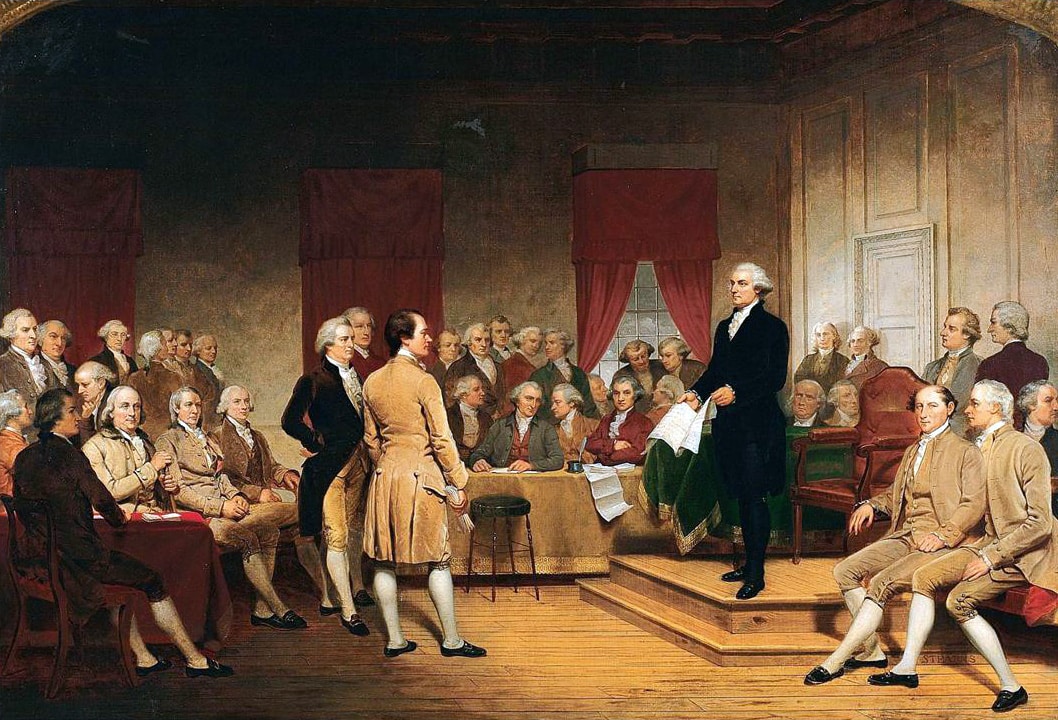The taxing power in the federal government resides in the Congress. The Constitution states that Congress has the power to “lay and collect Taxes, Duties, Imposts and Excises, to pay the Debts” of the federal government. Indeed, in order to emphasize the location of this power in the Congress, the Constitution also requires that all legislation “for raising Revenue shall originate in the House of Representatives.”
So, if only Congress can impose taxes, how can the president impose tariffs?
Here is the backstory.
However one characterizes a tariff, since it consists of the compulsory payment of money to the federal government, it is a form of taxation. It is — to use James Madison’s language — a duty or an impost. The federal government survived on duties and imposts — some of which were imposed on the states — from the time of its creation in 1789 until the War Between the States. Even under Abraham Lincoln, when unconstitutional income taxes were imposed, they were done by legislation, not executive fiat.
Then came Franklin D. Roosevelt and a congressional ban on the exportation of armaments to be implemented at the president’s discretion. This sounds fairly benign, yet it fomented the supercharged presidency that we have today. When Congress banned the sale of American arms to foreign countries, it did so by giving FDR the power to decide what to ban and upon which countries to impose the ban. Then it did the unthinkable: It made a violation of the president’s fiats a federal crime.
I call this unthinkable because under the Constitution’s Due Process Clause jurisprudence, at the federal level only Congress can make behavior criminal.
In defiance of FDR’s ban, Curtiss-Wright Export Corporation, an American manufacturer of military hardware, sold armaments to the government of Bolivia, and the Department of Justice persuaded a federal grand jury to indict the corporation. Then a federal judge dismissed the indictment on the constitutional basis that only Congress can decide what behavior is criminal and it cannot give that power to the president.
The trial court merely enforced the well-known and universally accepted non-delegation doctrine. It stands for the principle that the three branches of government cannot delegate away any of their core powers. Among Congress’ core powers is writing laws and deciding what behavior is criminal. By giving away this power to the president, the trial court ruled, Congress violated the non-delegation principle, and thus FDR’s determination that arms sales to Bolivia was criminal was itself a nullity.
The government appealed directly to the Supreme Court. Had the court simply reversed the trial judge and sent the case back to him for trial, we might never have heard of this case or the policy it established.
Yet, instead of a simple reversal, the Court issued a treatise on presidential power. Using truly novel rationale written by Justice George Sutherland, the court held that, even though the power to establish foreign policy is not expressly given to the president, that power — are you ready for this? — traveled across the Atlantic in 1789 from King George III to President George Washington and was permanently reposed in the presidency.
It doesn’t stop there.
In furtherance of his pursuit of foreign policy, the president need not consult the Congress and need not require legislation. Stated differently, because the president, Justice Sutherland wrote, is the sole keeper of the country’s foreign policy, he requires tools in order to do so, and among the tools available to him to effectuate that policy is the power to make behavior that defies his foreign policy a crime; also among those tools is the power to tax in furtherance of his foreign policy.
This logic appears nowhere in the Constitution. Justice Sutherland, who was born in Great Britain, analogized American presidential power in foreign relations to that of British monarchs in the era before parliamentary supremacy. And this utter nonsense is still the law today!
Now back to tariffs.
Regrettably, the Curtiss-Wright case — though wrongly decided and absurdly reasoned — is still good law today, and presidents from FDR to Donald Trump have relied upon its authority for their unilateral decisions on American foreign policy. I call this regrettable because it constitutes a pronounced transfer of power from Congress to the president, in defiance of the Constitution.
FDR gave us the welfare state. Perhaps Donald Trump will undo it.
But all this happens at the price of constitutional norms. Before Curtiss-Wright — and even since — the Supreme Court ruled that all federal power comes from the Constitution and from no other source. That’s because James Madison and his colleagues created a central government of limited powers — limited by and articulated in the Constitution.
But Curtiss-Wright says some federal power comes from Great Britain! So, where does this leave us?
The Congress is not a general legislature like the British Parliament, and the president is not a monarch. To argue that powers come from some source other than the Constitution is anti-constitutional. And in this case, to claim with a straight face that George III’s powers were reposed into the American presidency is an absurdity that would have been rejected summarily and unambiguously by the Framers.
History and politics often change the rules. Until 110 years ago, with the exception of Lincoln’s presidency, the federal government operated under the Madisonian model: The federal government can only do that which is expressly authorized by the Constitution.
From and after the dreadful Progressive Era, the Wilsonian model has prevailed — the federal government can address any national problem for which there is a political will, subject only to that which is expressly prohibited by the Constitution. Add to the Wilsonian model the nonsense from Curtiss-Wright, and you have a presidency that can tax any foreign event and create a domestic crime.
Even George III lacked such powers.
To learn more about Judge Andrew Napolitano, visit https://JudgeNap.com.
COPYRIGHT 2025 ANDREW P. NAPOLITANO
DISTRIBUTED BY CREATORS.COM

